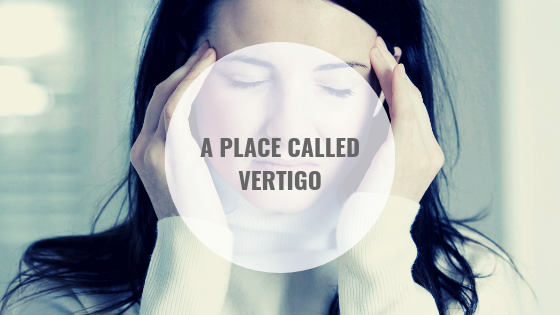Julie Entwistle, MBA, BHSc (OT), BSc (Health / Gerontology)
I am not sure what the word “vertigo” refers to in U2’s hit song, but as someone living with vertigo, I can tell you it is not a place you want to be. Vertigo is highly unpleasant and can be caused by multiple factors including visual or auditory problems, or more commonly, head injury. I best describe my vertigo as my eyes and ears sending different messages to my brain regarding the position of my body in space. So, while my eyes tell me I am sitting still in a chair, my ears tell me I am on a boat in the middle of a hurricane. The result of these mixed messages is spinning, nausea, dizziness, problems walking, and ultimately dysfunction.
For me, my benign positional vertigo (BPV) lives in my right ear. As a result, I cannot lie on my right side, laterally flex my head to the right, lie flat with my neck extended, or look down into extreme flexion. While I can tolerate these movements momentarily, I cannot hold these positions for more than a few seconds otherwise I am sent into a spin that can last for days. I am fortunate to know my triggers and do my best to avoid them (no yoga for me). I have also learned, after living with this problem for two decades, how to catch my symptoms early to prevent a slight episode of dizziness from turning into days of bed rest.
When my clients experience vertigo and describe this to me, I can fully appreciate where they are coming from. The story is a book I too could write. But, like other “hidden” ailments, I get concerned when the medical community does not take this complaint seriously. This is especially true in my industry where insurers and their assessors often want “proof” of a health problem to support someone’s recovery. While I recognize that people can be dishonest, my experience is that people don’t make this stuff up. Health professionals need to give people the benefit of the doubt, including insurance situations. To understand, or better yet, support someone with any “invisible” problem like vertigo, health professionals need to be compassionate and should care enough to listen, to research and learn, and ultimately believe. Empathy, TRUST, and understanding will go a long way to support those that need it. I can only imagine how frustrating, devastating and angering it would be for someone to assume or opine that my “place called vertigo” is not a place at all: because, believe me, I live here.
previously posted August 2013

